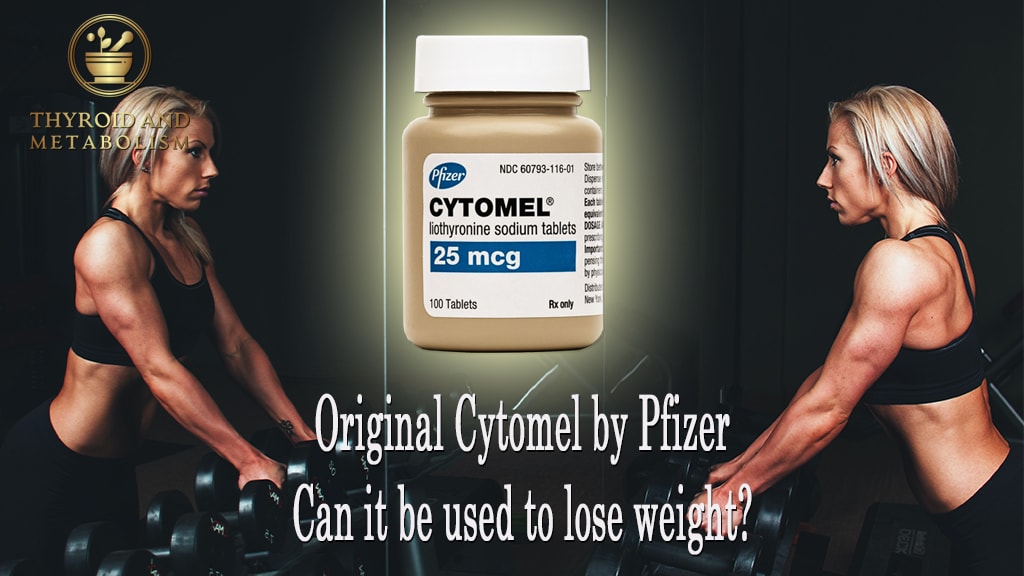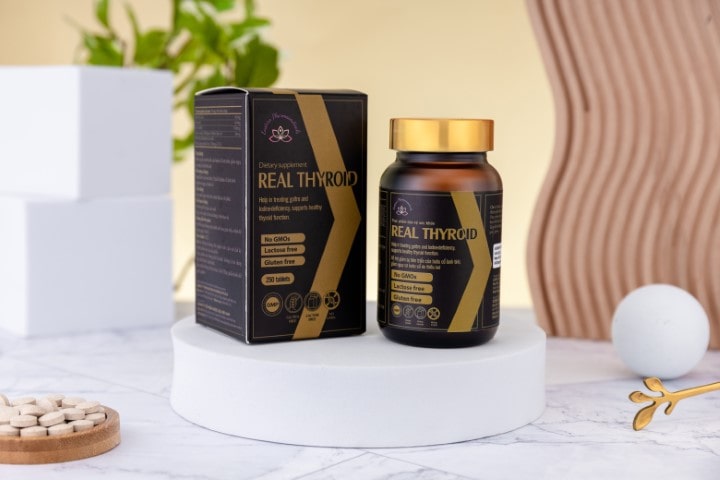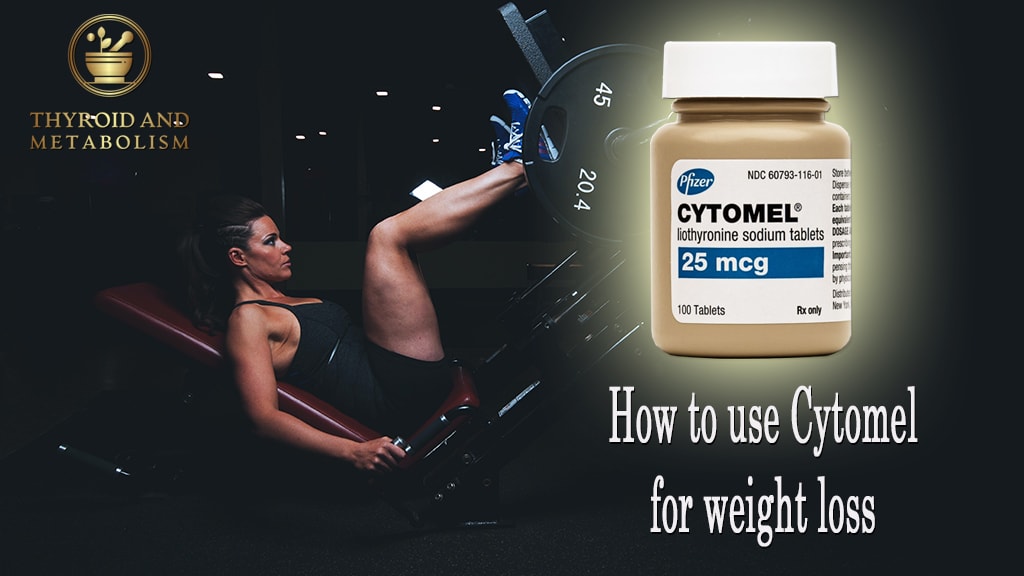Are you struggling to regulate your thyroid function? This can be a difficult task, as there are many medications available to treat the thyroid disease. So, which medication is right for you? Liothyronine or Levothyroxine? In this blog post, we’ll compare the two medications and help you decide which is best for you. Keep reading to learn more!
What is Levothyroxine?
Levothyroxine or L-Thyroxine, (T4) is a medication used to treat thyroid disorders. Levothyroxine is a type of synthetic thyroid hormone and is prescribed in order to replace the body’s lost thyroid hormone or as a part of a thyroid cancer treatment program.
Thyroxine is the name of the T4 hormone produced by human or animal thyroids. Levothyroxine is usually taken by mouth, but can also be given as an injection. Levothyroxine is available in a number of different brands and can be found at most pharmacy stores. The most popular brand of synthetic T4 is Synthroid.
What is Liothyronine?
Liothyronine (T3) is a synthetic thyroid hormone, similar to the natural hormone thyroxine (T4). It is used to treat hypothyroidism, a condition in which the thyroid gland does not produce enough thyroid hormone. Triiodothyronine is the T3 hormone produced by human or animal thyroid or other tissues from T4 hormone.
Liothyronine is available as a pill and also can be given by injection. The most popular brand of synthetic T3 is Cytomel.

T4 vs. T3 what’s the difference?
The thyroid gland is responsible for releasing hormones that control metabolism. There are two main types of thyroid hormones: T4 and T3.
T4 is produced by the thyroid gland in the greatest quantity, while T3 is the most active form of thyroid hormone.
T4 is a precursor to T3, meaning that it is converted into T3 in the body. Most of the T3 in the body is created through this conversion process. However, some T3 is also produced directly by the thyroid gland.

Levothyroxine or Liothyronine, which is better?
American Thyroid Association (ATA) recommends starting patients on levothyroxine as it’s much cheaper to manufacture, much more profitable for drug manufacturers, and easier to dose than other types of thyroid medications like Liothyronine or Natural Desiccated Thyroid hormone. Levothyroxine is typically prescribed as the first-line treatment for hypothyroidism, while liothyronine is used as second-line therapy or in cases of resistant hypothyroidism.
Conventional medicine assumes your body can convert T4 into T3 at sufficient levels. Synthetic T4 — levothyroxine – is, therefore, the best treatment.
According to patient advocates like Mary Shomon, the medical community believes that patients with hyperthyroidism should only be treated with T4 and not T3 or T4. In this case, the body will produce enough T3 in its infinite wisdom!
However, influential randomized controlled trial studies show that the majority of patients with hypothyroidism prefer treatment with T3 because often body does not convert T4 into T3 in sufficient amounts!
Clearly, patients benefit from added T3 most of the time. Levothyroxine plus liothyronine compared is a much better thyroid hormone replacement therapy.
The quality of life of hypothyroid patients with primary hypothyroidism is much better with T3 than without it! Hypothyroid patients should give synthetic T3 or natural thyroid a chance.
Difference between Liothyronine and Levothyroxine treatment of hypothyroidism
There are several types of thyroid hormone replacement therapies for hypothyroidism. The two most common are liothyronine and levothyroxine.
Both medications work to replace the missing thyroid hormone in the body, but they work in different ways. Levothyroxine is a synthetic form of the thyroid hormone thyroxine (T4). Liothyronine is a synthetic form of the thyroid hormone triiodothyronine (T3).
Levothyroxine is absorbed by the body more slowly than liothyronine, so it can take several weeks for symptoms to improve after starting levothyroxine therapy. Liothyronine works more quickly, but it also has a shorter half-life than levothyroxine. This means that it needs to be taken more frequently than levothyroxine.
Liothyronine pros:
- It directly replaces T3, so you do not need to rely on T4 to T3 conversion
- It often improves symptoms better than Levothyroxine alone
Liothyronine drawbacks:
- It is very short-acting, so it probably should be taken multiple times a day
- Quick absorption means T3 hormone levels fluctuate during the day a lot
- Can influence blood test results to a large degree
- Can cause thyrotoxicosis (hyperthyroidism) symptoms
Thyroxine plus Triiodothyronine Combined Therapy
Although thyroxine (T4) has been the mainstay therapy for hypothyroidism for many years, there is clinical evidence that suggests that the addition of triiodothyronine (T3) to T4 may offer some advantages. In one study, patients who were receiving thyroxine therapy for hypothyroidism were randomly assigned to receive either thyroxine alone or a combination of thyroxine plus triiodothyronine. The patients receiving the combination therapy showed significantly greater improvement in symptoms, quality of life, and thyroid hormone levels compared to those receiving thyroxine alone. Furthermore, the combination therapy was well-tolerated and resulted in few side effects. These findings suggest that thyroxine plus triiodothyronine combined therapy may be a more effective treatment option for patients with hypothyroidism[1].
Liothyronine Uses
Liothyronine is a synthetic form of the thyroid hormone triiodothyronine (T3). It is used to treat hypothyroidism, a condition where the thyroid gland does not produce enough thyroid hormone. It is also used to treat goiters and thyrotoxicosis, conditions where there is too much thyroid hormone in the body. Liothyronine works by replacing the missing or excess thyroid hormone in the body. This helps to regulate the body’s metabolism and restore normal levels of serum T3 and serum TSH. Liothyronine is available as a tablet and an injectable solution. It is typically given once daily, in the morning, but many patients benefit from multi-dosing during the day.
Side Effects of Liothyronine vs. Side effects of Levothyroxine
When it comes to treating hypothyroidism, doctors usually prescribe levothyroxine. However, some people may not tolerate levothyroxine well or may not experience adequate symptom relief. In these cases, liothyronine may be prescribed instead. Both levothyroxine and liothyronine are thyroid hormone replacements that can help improve related quality of life issues and body weight. However, they can also cause side effects. The most common side effects of levothyroxine are anxiety, chest pain, headache, diarrhea, and trouble sleeping. The most common side effects of liothyronine are nausea, vomiting, abdominal cramps, and increased heart rate. While both medications can cause side effects, the side effects of liothyronine tend to be more severe. As a result, patients taking liothyronine should be monitored closely by their doctor.
Levothyroxine and Liothyronine drug, supplement, and food interaction:
When it comes to managing your thyroid medication, it’s important to be aware of potential interference from other substances. Some medications, supplements, and foods can bind to thyroid medication and reduce its absorption. For example, calcium supplements can interfere with the absorption of levothyroxine (a common thyroid medication). iron supplements can reduce the absorption of both levothyroxine and thyroxine, while omeprazole (a medication used to treat heartburn) can decrease the absorption of levothyroxine. Other potential offenders include antacids, cholestyramine (a medication used to treat diarrhea), grapefruit juice, soybean flour, cottonseed meal, walnuts, dietary fiber, and soybeans. If you’re taking thyroid medication, talk to your doctor about potential interactions and make sure to take your medication at least four hours before or after consuming any of these substances. By doing so, you can help ensure that your thyroid medication is able to do its job effectively.
Contraindications for Liothyronine and Levothyroxine treatment:
Levothyroxine and Liothyronine are replacement therapies for hypothyroidism. These hormones are essential for normal body function, and when levels are low, patients may experience a wide range of symptoms, including fatigue, weight gain, hair loss, and depression.
While these medications are generally safe and effective, there are a few contraindications to be aware of. First, Levothyroxine and Liothyronine should not be used to treat overactive thyroid gland or thyrotoxicosis crises.
Second, patients with diabetes or pituitary hormone deficiency should not take these medications.
Third, Addison’s disease is a condition where the adrenal glands produce fewer hormones; patients with this condition should not take Levothyroxine or Liothyronine.
Fourth, these replacement therapies are also not recommended for patients with high blood pressure, angina, coronary artery disease, abnormal heart rhythm, osteoporosis, or decreased calcification or density of bone.
How are Liothyronine (T3) and Levothyroxine prescribed?
Combined therapy with Levothyroxine and Liothyronine (T3) are two thyroid hormones that are commonly prescribed for replacement therapy in the treatment of hypothyroidism. Levothyroxine is the synthetic form of the hormone thyroxine, and Liothyronine is the synthetic form of the hormone triiodothyronine.
Both hormones are essential for regulating metabolism, and a deficiency of either can lead to a variety of symptoms, including fatigue, weight gain, and depression. replacement therapy with either hormone is typically very effective in treating hypothyroidism.
The dosage and schedule of replacement therapy will be individualized based on the patient’s needs, and it is important to follow the instructions of your healthcare provider. With proper replacement therapy, most people with hypothyroidism are able to live normal, healthy lives.
How is T3 added to levothyroxine monotherapy?
For patients with hypothyroidism, replacement therapy with levothyroxine is the standard of care. However, some patients may not adequately respond to levothyroxine monotherapy and may require the addition of liothyronine (T3) to their treatment regimen.
T3 can be added in the form of synthetic T3 medication (such as Cytomel) or natural desiccated thyroid (NDT) preparations (such as Armour Thyroid, Thyroid-S, or VitaliThy). The decision of which form of T3 to add should be made in consultation with a qualified healthcare professional. In general, synthetic T3 is started at a lower dose and titrated up as needed, while NDT is started at a lower dose while levothyroxine dose is also being lowered.
Regardless of which form of T3 is used, close monitoring by a healthcare professional is essential to ensure that the correct dose is being used and to avoid potential side effects. With proper medical supervision, the addition of T3 to levothyroxine therapy can be an effective way to treat patients who are not adequately responding to levothyroxine alone.
Synthetic T4 and Synthetic T3
Levothyroxine is the most common treatment for primary hypothyroidism. However, some patients may not be able to tolerate levothyroxine or may not respond well to treatment. In these cases, synthetic T3 can be added in an effort to achieve better results. T3 is typically added in the form of brand-name Cytomel or generic liothyronine. These medications are available in pill form and are taken orally. The dosage of T3 is typically adjusted until the desired effect is achieved. Some patients may need to take T3 indefinitely in order to maintain normal thyroid function.
Compounded T4 and T3
There are several ways your physician can add T3 to your treatment of primary hypothyroidism. One way is to add compounded, prescription, time-released T3 to levothyroxine. This ensures a steady supply of T3 throughout the day, which can help to improve symptoms and thyroid function. Another way is to prescribe T3 in addition to levothyroxine, which allows you to adjust your dose depending on how you feel. Whichever method your physician chooses, adding T3 can help to improve your treatment and thyroid function.
Adding Natural Desiccated Thyroid to Levothyroxine
There are a few different ways your physician can add T3 to your current levothyroxine treatment. These include adding a natural desiccated thyroid (NDT) drug such as Nature-throid, Thyroid-S, VitaliThy, Thyroid WP, Armour Thyroid, Real Thyroid or generic NDT. NDT contains natural T3.

Stopping Levothyroxine entirely and switching to an NDT.
There are several ways to add T3 to your treatment plan. One method is to stop taking levothyroxine entirely and switch to an NDT like Armour Thyroid, VitaliThy or Thyroid-S. Your health-related quality of life will most likely improve.
Liothyronine and weight loss?
One common concern for patients starting liothyronine treatment is weight loss. Will I lose weight on liothyronine? It’s a valid question and one that doesn’t have a simple answer. Liothyronine is a medication used to treat hypothyroidism, and it can be very effective in restoring euthyroidism in all tissues of the body. However, weight loss is not a guaranteed side effect of liothyronine treatment. In fact, some patients may even gain weight. The best way to find out if liothyronine will help you lose weight is to speak with your doctor and discuss your specific situation.

FAQ Liothyronine vs. Levothyroxine
If you have been prescribed levothyroxine or liothyronine, you may be wondering what the difference is between the two drugs. Both medications are synthetic versions of the hormone thyroxine, which is produced by the thyroid gland. Levothyroxine is the most common form of thyroxine and is generally well tolerated by patients. Liothyronine, on the other hand, is a more powerful form of the hormone and is typically reserved for patients who do not respond well to levothyroxine. While both drugs can be effective in treating hypothyroidism, they can also cause some side effects. Some common side effects of levothyroxine include headaches, fatigue, and weight gain. Side effects of liothyronine may include anxiety, irregular heartbeat, and difficulty sleeping. If you are unsure which medication is right for you, be sure to speak with your doctor.
Is it OK to take levothyroxine and liothyronine together?
If you have hypothyroidism, your doctor may prescribe levothyroxine (Synthroid, Levoxyl, Levothroid), a synthetic version of the hormone thyroxine (T4). Liothyronine (Cytomel), another synthetic thyroid hormone, is sometimes given along with levothyroxine. A number of studies have shown that a combination of the two drugs is more effective than levothyroxine alone in treating hypothyroidism. However, not all patients feel better when taking both drugs. In addition, the combination therapy may be more expensive than levothyroxine alone. If you and your doctor decide that a combination therapy is right for you, be sure to monitor your thyroid function closely and let your doctor know if you have any side effects.
What Is the Difference Between Cytomel and Synthroid?
Cytomel and Synthroid are two medication options for hypothyroidism. Synthroid is the most common form of levothyroxine, while Cytomel is a brand name for liothyronine. Both drugs are synthetic versions of the hormones produced by human thyroid gland.
Although they are similar in many ways, there are some important differences between them. Cytomel is generally considered to be more potent than Synthroid, and it is often used when patients do not respond well to Synthroid therapy. In addition, Cytomel is given as a short-term treatment option when patients are diagnosed with thyroid cancer, while Synthroid is usually given as a long-term treatment option. Finally, although both drugs are effective.
Levothyroxine vs. Combination T4/T3 Therapy for Hypothyroidism which is better?
Clinical trials have been conducted in order to determine whether levothyroxine or combination T4/T3 therapy is more effective for the treatment of hypothyroidism. The findings of these trials are mixed, with some studies showing that levothyroxine is more effective and others finding no significant difference between the two treatments.
However, the majority of clinical trials have found that combination T4/T3 therapy is associated with greater improvements in symptoms and quality of life compared to levothyroxine alone. Based on these findings, it appears that combination T4/T3 therapy may be the better option for the treatment of hypothyroidism.
Is Liothyronine beneficial or harmful compared to L-thyroxine?
When it comes to thyroid hormone replacement therapy, the two most common options are Liothyronine (T3) and L-thyroxine (T4). Both of these treatments can be effective in managing hypothyroidism, but there are some key differences between them. T3 is the active form of thyroid hormone, and its effects are felt more quickly than T4. As a result, T3 is often used to manage acute episodes of hypothyroidism. However, T3 also has a shorter half-life than T4, which means that it can be more difficult to maintain consistent t3 levels. For this reason, T4 is often the preferred treatment for long-term management of hypothyroidism. Ultimately, both T3 and T4 can be beneficial for managing thyroid hormone levels, but T4 may be the better option for long-term treatment.
References:
Metabolic effects of liothyronine therapy in hypothyroidism: a randomized, double-blind, crossover trial of liothyronine versus levothyroxine [1]
1 thought on “Liothyronine versus Levothyroxine: Which Is Better?”
Pingback: WP Thyroid vs. liothyronine (Cytomel), which is better? - Thyroid And Metabolism